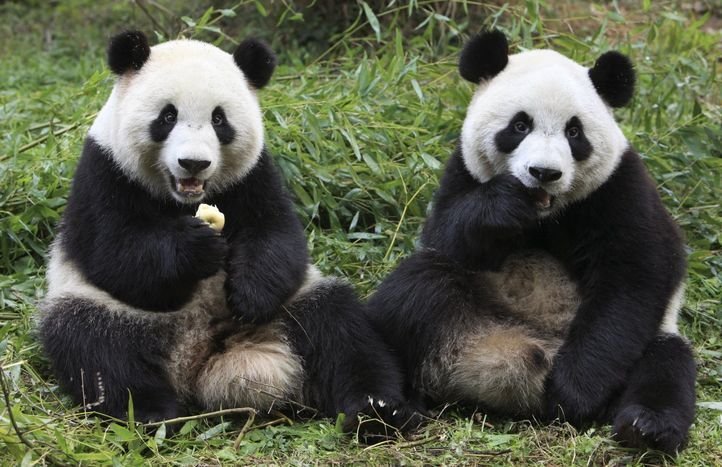Chinese researchers have decoded 13 different kinds of giant panda vocalisations, a surprising new insight in the private lives of the reclusive creatures. The China Conservation and Research Center for the Giant Panda (CCRCGP) in southwest China’s Sichuan Province has been working on a panda linguistics project since 2010, PTI reported.
They first made recordings of pandas at the breeding centre, cubs and adults, in various situations: when they were eating, mating, nursing, fighting and so on, said Zhang Hemin, head of the CCRCGP. And they discovered that giant pandas baa like sheep to say “I love you” and warble a cheerful “I do” when wooed by a suitor. Isn’t that truly adorable?

“We managed to decode some panda language and the results are quite interesting,” said Zhang. Panda cubs can barely speak at all except to say things like “Gee-Gee” (I’m hungry), “Wow-Wow” (Not happy!) or “Coo-Coo” (Nice!).
“Adult giant pandas usually are solitary, so the only language teacher they have is their own mother. When they grow a little and they can learn from their mother how to express themselves by roaring, barking, shout, squeaking, bleating and chirping,” Zhang said. “If a panda mother keeps tweeting like a bird, she may be anxious about her babies. She barks loudly when a stranger comes near. The barking can be interpreted as ‘get out of my place’,” he said.

“Pandas can be as gentle as lamb when they are “in love”. Male pandas baa all the time when they are wooing to their lovers. The females respond with constant tweeting if they feel the same,” he added. “Trust me. Our researchers were so confused when we began the project that they wondered if they were studying a panda, a bird, a dog, or a sheep,” Zhang said.
Fewer than 2,000 pandas live in the wild, mostly in the provinces of Sichuan and Shaanxi. There were 375 giant pandas in captivity at the end of 2013, about 200 of them at the CCRCGP.

















